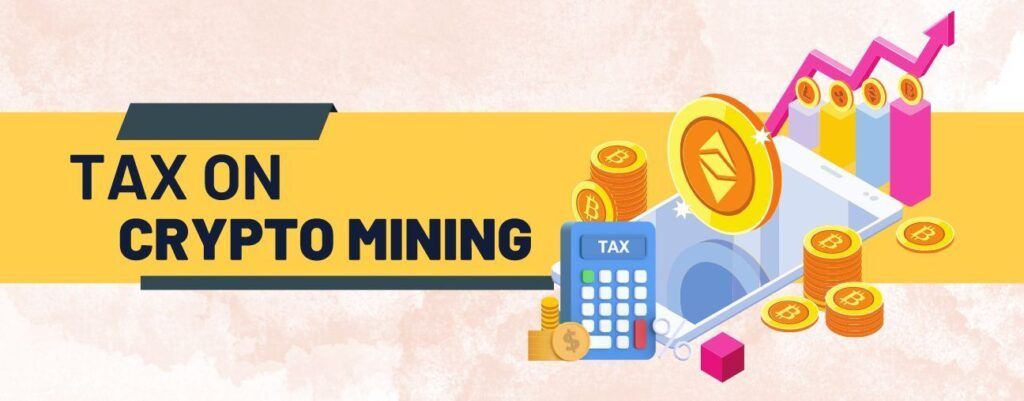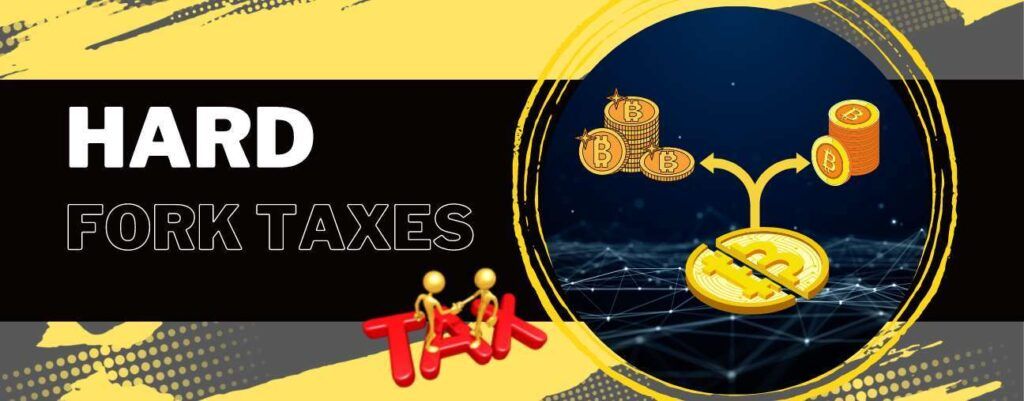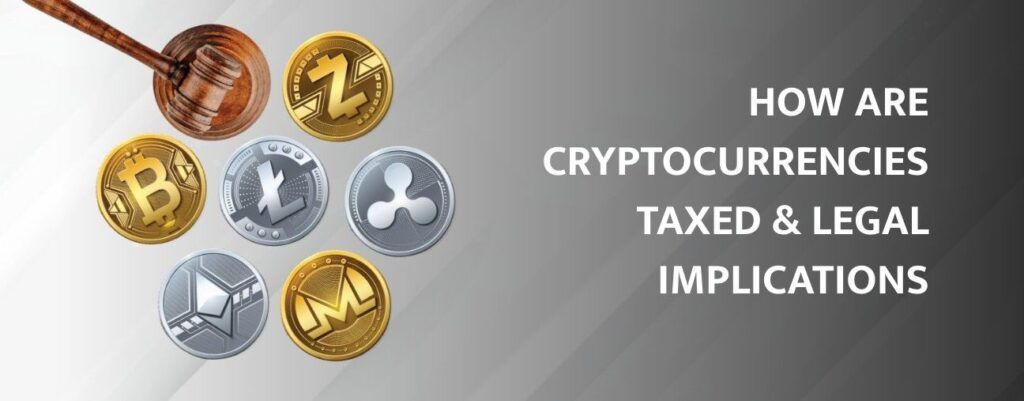Summary : Staking is a process that allows crypto investors to earn rewards on their holdings by verifying transactions. So, what exactly is crypto staking? When you stake your cryptocurrencies, you’re lending them out to support a blockchain network in order to confirm transactions. If you’re looking for a way to generate passive income from your cryptocurrency, staking can be a great option—especially because some cryptocurrencies offer high-interest rates for stakers. Let’s dig further about how crypto staking works before discussing the taxes associated with it.
Introduction
As new technologies emerge, investors may create a passive income stream. While cryptocurrencies (or crypto) and blockchain have been in existence for almost a decade, they are still relatively obscure in the financial world.
Staking is the process of validating and processing transactions on a blockchain in order to earn currency. Similar to crypto mining, staking allows investors to make money by verifying and processing transactions on a specific blockchain. These staking bonuses, on the other hand, may surprise you when it comes to your taxes.
Buying crypto has the potential to provide an income stream if the cryptocurrency you buy increases in value. However, there is another method to generate money with cryptocurrencies known as staking. When you stake your cryptocurrency, you are effectively loaning it to the creators of the coin so that they can validate transactions on the blockchain.
When you loan or stake your cryptocurrency, you’re paid with more coins as a form of interest. It’s similar to loaning money to a bank and earning interest on that deposited amount. Staking has grown in popularity as a means for new cryptocurrencies to help with the release of their supply and reward speculators.
According to the most recent upgrade, staking is defined as the creation of a new digital currency. It’s slightly different and more comparable to a bank account, and we’ll have to wait for further IRS rulings before determining how it affects taxes.
What is Proof of Stake (PoS)?
Proof-of-stake is a cryptocurrency algorithm that keeps the blockchain secure by validating entries and creating new blocks.
What is Proof of Work (PoW)?

It’s the process by which transactions are gathered into blocks. The blockchain is then built up from these blocks. Miners attempt to solve a difficult mathematical problem in order to include the next block onto the blockchain and earn rewards.
What is Crypto Staking?
It is a consensus mechanism used by blockchains, and a method for crypto investors to earn passive income.
You’ve certainly heard of Proof of Work (PoW) if you know anything about Bitcoin.
Issues That Emerged As A Consequence of PoW Blockchains
There are a number of issues that have emerged as a consequence of PoW blockchains, including:
- The energy required to operate mining hardware.
- Mining equipment requires a wide range of materials, including rare metals like platinum and palladium. These materials are essential for other sectors such as healthcare, IT, and the automobile sectors.
- Scalability is limited by mathematical means.
- Expensive fees and a slow transaction speed can be major hindrances to your business.
- Because of the increased competition in proof-of-work blockchains, miners are receiving lower rewards.
So What’s Plan B?
This is where Proof of Stake enters.
Rather than using proof-of-work, some cryptocurrencies implemented a proof-of-stake consensus mechanism. Some well-known PoS blockchains include Bitcoin and Ethereum.
In a PoS consensus mechanism, you ‘stake’ your cryptocurrency to earn interest. Staking works in the same way as mining, with one notable exception: rather than selecting a network participant to include the most recent transaction batch to the blockchain and obtain cryptocurrency, staking picks one individual at random. The network’s selection process for validators is based on both the size of their stake and how long they’ve held it; therefore, those with the most invested are well-compensated.
Staking via PoS helps protect the blockchain by allowing you to be a part of the process of generating new coins.
How Does One Stake?
You can either use a non-custodial wallet or go through a third party to stake your currency.
Let’s see a few examples.
Staking is available via specific non-custodial wallets. Yoroi, for example, enables you to stake ADA from your Yoroi wallet and (once you’ve got the correct software) AVAX via an Avalanche wallet.
You can also stake your crypto funds with a third party, most often with an exchange like Kraken. In these situations, you would “lock” your cryptocurrency into a non-custodial wallet in order to receive staking rewards. For a majority of investors, this option is more favorable as it doesn’t require them to install any extra software.
This is important because the way staking rewards are taxed varies based on whether you’re staking directly through the PoS mechanism or via a third party.
Understanding Staking Rewards
It’s similar to buying a raffle ticket with cryptocurrency. Each new block is validated by a winner who receives a reward. The more raffle tickets you have, the greater your chances of winning.
When you stake cryptocurrency, you may usually expect to earn more currency or tokens of the same type. Tezos stakers get rewarded with Tezcoins, Avalanche takers get rewarded with Avalanche coins, and so forth.
Understanding a Staking Pool
A staking pool is when a group of coin holders puts their resources together. By doing this, they increase the chances that they will validate blocks and receive rewards in return. When people stake their coins together, it’s called ‘pooling,’ and everyone involved shares in the rewards equally.
In general, a staking pool is operated by a pool operator and the people that want to join the pool have to put their coins in a particular blockchain address (or wallet). Although some pools force users to stake their coins with an external party, there are other options that let stakeholders add to the pool with their staking power while still keeping control of their own wallets.
DeFi Staking v/s PoS Staking

The phrase “staking” can refer to two different events, which often leads to confusion. These events are staking as part of a consensus mechanism or DeFi staking. It’s important to make this distinction because each event taxes you differently.
DeFi staking is similar to when you lock your coins or tokens in a specific DeFi protocol – usually a lending service – so that you can earn rewards. To put it simply, DeFi staking would be like if you provided capital in order to gain interest, much like other kinds of arrangements. The benefits are generally taxable as income, however, this is subject to the specific DeFi protocol you’re using. You may discover extra information about our DeFi tax advice here.
| DeFi Staking | PoS Staking |
|---|---|
| DeFi Staking is a process that requires users to lock a certain amount of native tokens. | PoS Staking is validating block transactions based on the number of staked coins. |
How Is Crypto Staking Taxed?
Staking has two stages. The first is staking, which involves several transactions. This stage is key because it decides how your crypto will be taxed and where you reside. Staking pools, wallets, and third-party staking services are not going to be taxed in most situations. Your own crypto can be moved from one wallet to another, which is a tax-free occurrence. Gas or transfer fees, on the other hand, have their own set of rules.
While the news is good when it comes to staking rewards, the tax creates a bit of a problem.
Tax on Staking Rewards

The amount of taxes you pay on your staking rewards vary based on both your location and how your tax office perceives cryptocurrency staking. For some countries, it also is influenced by whether you stake directly or if you use a third-party service.
It’s a complicated topic, but staking rewards are subject to income tax based on the coins’ fair market value at the time you receive them. When you sell, trade, or spend your staked coins, you’ll also pay Capital Gains Tax – just as you would with any other cryptocurrency.
Many countries handle taxes on crypto staking rewards in different ways, let’s take a look at how the US and India handle taxes on crypto staking rewards.
In short, staking rewards are taxed as income as they are a kind of dividend payout.
Situations When Staking Rewards Are Not Taxable
If the IRS considers cryptocurrency to be property rather than money, and staking is considered a capital investment rather than a service, any increase in staked crypto should not be taxed until there is a realization event or payout. As a result, the staking rewards should not be taxed until they are disposed off.
How Is Staking Taxed In The US?
The IRS has yet to provide advice on crypto staking taxation, despite issuing rules on the cryptocurrency mining tax. Investors have the best information they’ve got regarding how staking is taxed because of the guidance in Notice 2014-21 on the crypto mining tax.
With respect to mining, the law is quite clear. Cryptocurrency mining is regarded as a type of income and taxed in accordance with its Fair Market Value in US dollars at the time you receive it. When you sell, spend, or trade your mined coins later, you’ll also have to pay Capital Gains Tax.
Many investors initially believed that staking rewards would be taxed in a comparable method. However, there are problems with this theory.
But there’s still no clarity as such…
Some argue that you should not be taxed on newly generated coins because they are considered property, similar to a manufacturer who wouldn’t be taxed on the value of the computers they manufacture.
In fact, a couple from the United States is suing the IRS to protest taxation on their Tezos staking rewards.
Furthermore, the 2014 notification overlooks the inflationary impact of freshly staked tokens and the trouble of establishing a taxable occurrence each time there are new tokens, which might be multiple times per day.
As of now, the IRS has not given any additional information about whether or not staking rewards are subject to taxes. However, for the time being, most tax advisors believe that receiving staking rewards would be taxed as income, and selling them would be subject to capital gains taxes.
Do you want to learn more about how cryptocurrencies are taxed in the United States? Check out our article for more information here
How is Crypto Staking Taxed in India?
The ITD has yet to provide any information on staking rewards or tax issues. However, if you’re staking as part of a PoS consensus method, you’ll almost certainly have to pay 30% Income Tax on the value of your staking rewards at the time you receive them, based on their fair market value on the day you receive tokens. You’ll also be responsible for paying the 30% income tax on any profits when you spend, trade, or sell staking rewards.
How Do You Report Crypto Staking?
It’s simple to keep track of and tag your staking transactions with a CRPTM crypto tax calculator.
When you get a reward, tag the deposit transaction as a “Staking Reward” so that CRPTM may include all staking-reward transactions in your income report and claim them on your tax returns. You report your staking rewards as other income on line 21 of Form 1040 Schedule 1 after you’ve calculated the fair market value in USD of your staking rewards on the day you earned them. For US investors, reporting staking profits as other income is found on line 21 of the 1040 Schedule 1 Form.
Summarizing
- Staking entails taking a chance by lending cryptocurrency to a goal.
- Your staking contribution should give you an incentive.
- Staking rewards allow you to earn a cryptocurrency passively.
- This is similar to earning a dividend or interest.
- Most countries view staking rewards as income and tax it under the Income Tax bracket.
Endnote
That concludes our take on cryptocurrency.
And don’t forget to share this blog with your friends and followers – knowledge is power.
Disclaimer: The information presented on this website is intended for general informational purposes only and should not be interpreted as professional advice from CRPTM. CRPTM does not offer financial advice. We strongly recommend seeking independent legal, financial, tax, or other professional advice to determine how the information provided on this website applies to your specific circumstances. CRPTM assumes no liability for any loss incurred, whether due to negligence or otherwise, resulting from the use of or reliance on the information contained herein.





